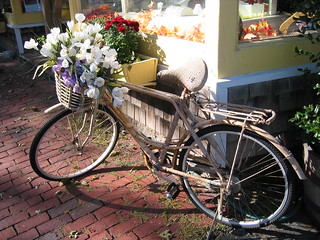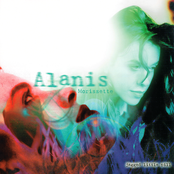Kirbi, a peer-to-peer library built with Grok
All of us have books that sit on shelves, doing nothing for anyone but collecting dust. I have some books that I have read several times, some others that I have read once, and still others that I have never read. I buy books them because I intend on reading them… some day. But no matter how voracious a reader you are, you can’t possible read all of your books simultaneously which means that there are a great many books that are simply being unused. All that knowledge trapped inside a bound volume just waiting to reveal itself to an open mind.
The problem
There are some books that you’d like to share with others, but unlike music or videos which can be digitized and easily replicated, a book is a physical object and only one person can have that copy. It’s quite time consuming to scan in every page, although that didn’t stop someone from scanning in the latest Harry Potter book to make it more widely available. So why are we reluctant sometimes to lend a book? Well, it’s a finite resource so if you give it to someone, you can’t use it until they give it back. Even worse, what if you forget who you gave it to, or you remember but they never give it back.
This was the problem that faced Luciano Ramalho, a Brazilian Zope developer and trainer and student of library science. I stayed with him in his modest sized apartment in São Paulo last week, and observed that his study was lined floor-to-ceiling with books. Luciano is truly a lover of books. And he wanted to be able to share them with his friends and colleagues but needed a way to keep track of who had which book and how long they had it.
So he scratched this itch and developed Kirbi, as part of a Google Summer of Code project. Kirbi is a web application to allow anyone to turn their personal book collection into a lending library, making book sharing among friends and colleagues easier and safer. Kirbi was created using Grok, a web application framework based on Zope 3.
“As a library sciences student, I designed [it] to increase the reuse of books, foster the exchange of reading experiences, and make books more accessible to all, particularly in developing countries.” -Luciano Ramalho
What makes it different?
There are similar initiatives such as Bookcrossing, but Luciano explains that with Bookcrossing there is very little incentive to keep these books in the system. They usually get left somewhere and forgotten. With this peer-to-peer library system that he has envisioned, you are borrowing books from your friends, so there is a personal connection and accountability to return the book or recirculate it.
Another similar project is Lovely Books, developed by Lovely Systems another Zope 3 development company in Austria. Luciano explained that there are many of these such sites, but they are mostly focused on letting the users show off their book collection, but not actively share these books physically with each other.
Kirbi works more like your public library in which you can request a book from someone in the network, and then set a time and a place to do the handoff. But in this case, the library is peer-to-peer and not centralized. You are more likely to have books that your friends want, and vice versa because you have similar interests. Luciano recommended a book by Yochai Benkler called, “The Wealth of Networks: How Social Production Transforms Markets and Freedom” (Yochai Benkler) which talks more about this idea. This book was already in my Amazon.com wishlist, but like so many other books, I have yet to read it.
Try it out!
Luciano has already developed a prototype demo site at Circulante.org where you can create a free account and try out the system. He’s made it very easy to add new books just by typing in the ISBN number, but has plans in the future to make it even easier by scanning the barcode on the back of the book using your computer’s webcam, similar to how the desktop software Delicious Library does it.
I’ve been thinking that my company, Jazkarta, could use this peer-to-peer library software. We all have books that each other would probably like to read, but we often don’t know that someone we know has the book that we want. The only problem in our case is that since we are spread out, the opportunities to physically hand-off the book are very seldom. We see each other at sprints and conferences and then we might not see each other again for months. But this may be okay for some books to loan them for this long.
If you start thinking about all the communities you are in and the people with whom you may want to share books: your apartment building, your church, your workplace, a neighborhood association, etc. There are ample opportunities to expand the number of people who could participate and share their books.
Developers get involved!
I think this is a really great idea and is the first real public example of a feature-rich web application built with Grok. Luciano is seeking others who would like to contribute to the project. It’s a great way to learn more about Grok / Zope 3. You can find the code in the Launchpad Bazaar repository or in the svn repo on Zope.org. I recorded a video of Luciano talking more about Kirbi and Grok and will post it as soon as I get caught up on things.

 RSS - Posts
RSS - Posts

























One Comment